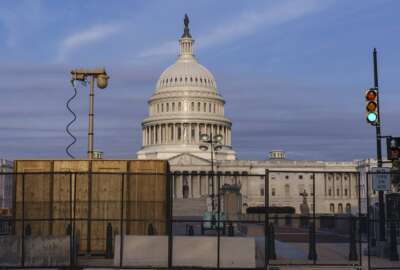One of the big differences between government and the private sector is the field of labor relations. In industry, it is usually disgruntled workers who go out on strike. Usually the shutdown is because of wages, benefits, working conditions or health and safety issues. The board of director of the company continues to be paid during the shutdown. Workers don’t get paid because they didn’t work.
In government it’s different! But you knew that.
In government, the board of directors (Congress and the White House) initiate and trigger the shutdown. The issues are almost always political in nature. Like the last one, from Dec. 22, 2018 until Jan. 25, 2019, where the sticking point was whether to fund building a border wall between the U.S. and Mexico. In that one, 800,000 feds were locked out of their offices. Many more contractors were also impacted by the shutdown. An equal number of feds were required to work during the shutdown. Neither the workers nor the locked-outers were paid until weeks — in some cases months — after the shutdown was settled.
Also, and again you knew this, the gang that always starts the shutdown continues to get paid while other feds are making do on, well in some cases, nothing. Members of the House, Senate and the folks at the White House continue to perform what they consider work and continue to get paid on time. The rationale is that since they created the problem they are best qualified to solve it.
If you missed the last shutdown, and the pending one is delayed, just wait… Your time will come.
While it’s a little late to advise people to have six months of emergency cash on hand, there are some things feds should know, and can do, to brace for the next lockout.
In addition to a problem with cash flow, a shutdown can create problems for about-to-retire feds. While the long predicted “retirement tidal wave” has yet to hit, the number of retirements is up and growing month by month. Unfortunately the backlog on processing claims is also growing. That means it can be months before a new retiree gets a full annuity check. During an extended shutdown — like the most recent ’35 days over Christmas lockout’ — many had to tap their TSP accounts early or for much more than they had planned.
We asked a veteran of several shutdowns for his thoughts. This is some of what he said:
“I suspect a wide disparity in reactions based on the individual’s service time and GS pay level. Some are living hand-to-mouth and [during the last shutdown] had to visit soup kitchens. Those of us in the higher pay bands who also stayed out of debt could rely on savings or credit card float for short periods. Relying on credit cards for longer periods of time would get you into high interest rate trouble. Then there is also the adjustment from sirloin to recalling college days of Dinty Moore and English Muffin pizza.”
He also pointed out that “although we have historically been granted back pay, this time, back pays is guaranteed in the legislation enacted after the last record-long shutdown of 2018-19. For those who cannot rely on savings, I’m hoping that Feds Feeds Families can help them if a shutdown occurs. And for those approaching retirement, a shutdown will likely further extend the retirement processing backlog at the National Finance Center and OPM.”
Benefits expert Tammy Flanagan said a shutdown now or in December “would be a nightmare. It would add to the mess that retirements are already facing with the current processing delays. The good news is that an employee who is furloughed will still receive credit for the time on LWOP as long as it doesn’t exceed six months in a calendar year. Let’s hope that doesn’t happen, for a variety of reasons. The high 3-year salary average will still include the salary for the time spent on LWOP as well.”
Bottom line, if you are a fed and never experienced one, just wait. If not this week, there will be another shot at one in December. Or next year.
But don’t waste time worrying about your elected leaders. They won’t miss a direct deposit!
Nearly Useless Factoid
By Adrian Dannhauser
Some fungi create zombies, then control their minds. The tropical fungus Ophiocordyceps infects ants’ central nervous systems. After nine days, they have complete control over the host’s movements. They force the ants to climb trees, then convulse and fall into the cool, moist soil below, where fungi thrive. Once there, the fungus waits until exactly solar noon to force the ant to bite a leaf and kill it.
Source: Reader’s Digest
Copyright
© 2024 Federal News Network. All rights reserved. This website is not intended for users located within the European Economic Area.

